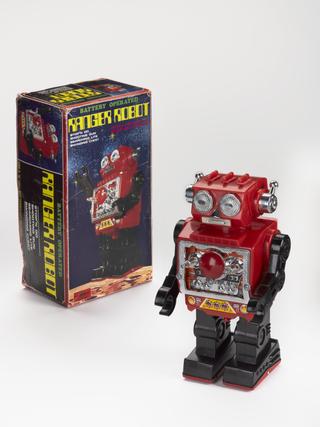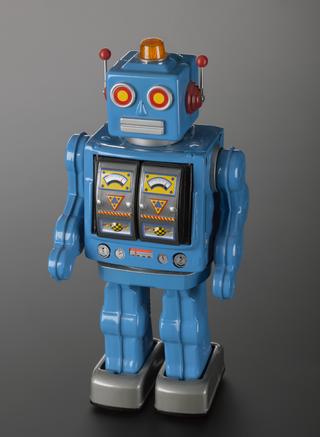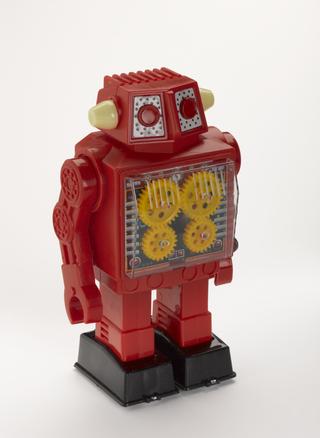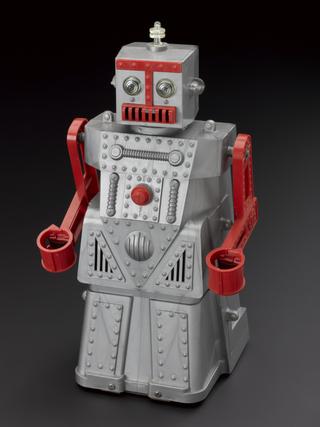





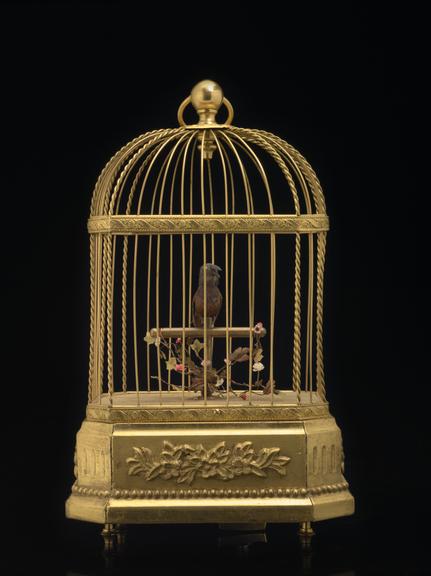



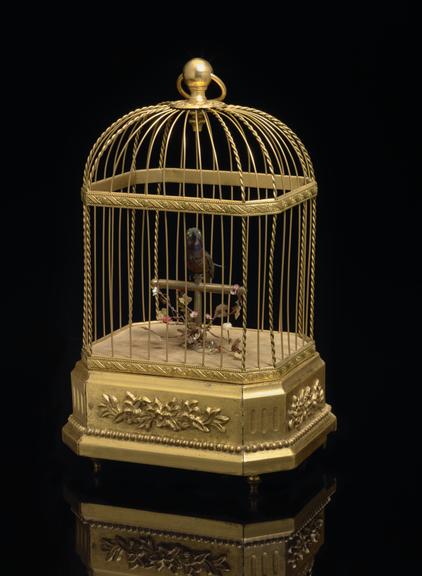
Bird in cage automaton, made by Bontems, France, c1900-1910.
The song-bird was a highly popular form of automaton, being built from the third quarter of the nineteenth century onwards, mainly in France. The company founded by Blaise Bontems (1814-1893) became a leader in the field, and the quality and realism of the birdsong was widely praised. This is a step in a long history of creating mechanical animals, from renaissance spiders to 18th century caterpillars and tigers, and the turtles of the twentieth century.
The nineteenth century was full of mechanical life. Following on from the early one-off automata of the ‘classic’ later eighteenth and early nineteenth centuries by makers such as van Kempelen or Maillardet, there emerged an industry, centred primarily in France, making all types of mechanical figures and animals in considerable numbers. As real living songbirds remained popular pets and companions, so mechanical equivalents found a ready market. This example is by the company founded by Blaise Bontems in Paris, which achieved fame for the quality of its products, and particularly for the life-likeness of the song. It is a step in a long evolution of mechanical animals, from Reichel’s spiders in Dresden to Maillardet’s caterpillars, the 19th century monkeys of Roullet & Decamps, and then the maze-solving mice and Grey Walter’s tortoises in the twentieth century.
The object is in good condition, comprising a brass cage with bird inside, and wooden gilded base containing the automaton mechanism below. It is in original condition, with Bontems key, and after winding is operated from a lever on the side of the base. The bird sings, opening and closing its beak and moving its head from side to side as its tail also rises and falls. It can also be set to operate at irregular intervals, thus adding to the lifelikeness of tis performance.
Details
- Category:
- Human Robotics
- Object Number:
- 2017-173
- Materials:
- wood (unidentified), brass (copper, zinc alloy) and steel (metal)
- type:
- automaton
- copyright:
- House of Automata
- credit:
- House of Automata
